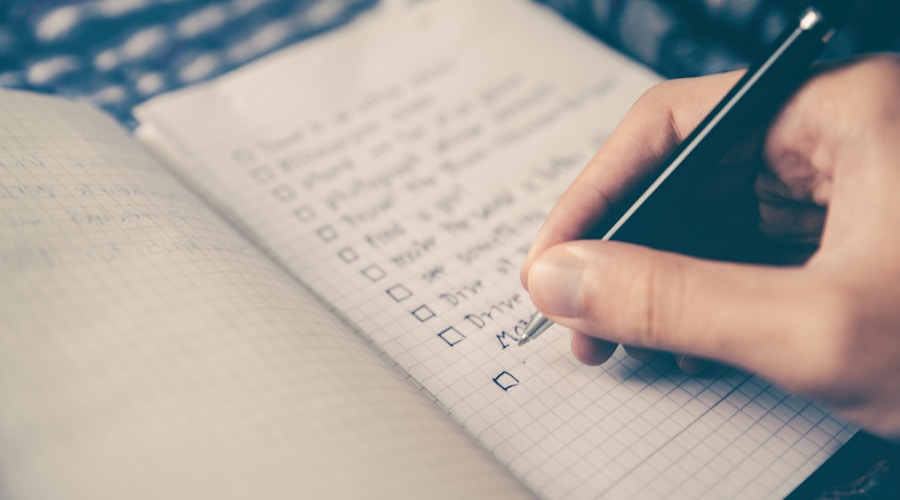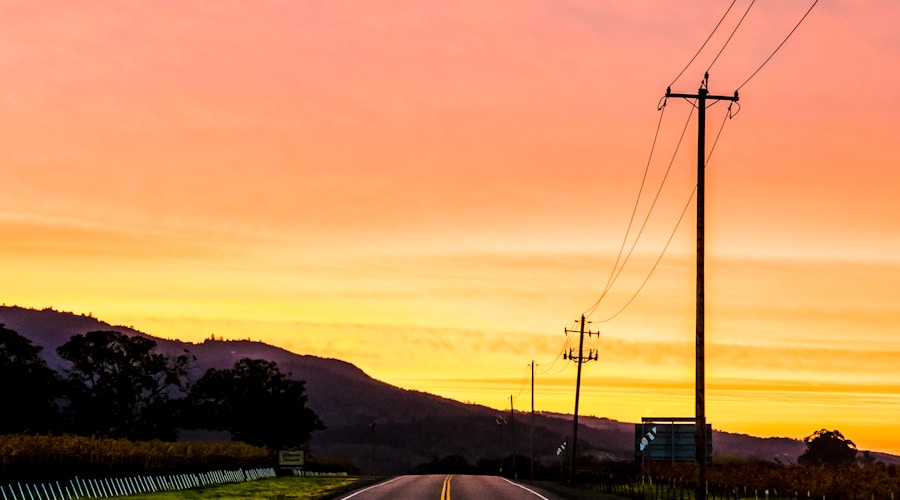Welcome to the world of motivation and finding your flow! Have you ever experienced being so engrossed in an activity that you lose track of time and everything else around you? That's what we call being in a state of flow. It's a feeling of complete focus, energized involvement, and enjoyment in the process of an activity. In this article, we will explore what flow is, how to enter it, and how to maintain it to reach your optimal state of motivation.
To start, let's understand the concept of flow and how it can benefit you in your daily life. As psychologist Mihaly Csikszentmihalyi defines it, "The best moments in our lives are not the passive, receptive, relaxing times... The best moments usually occur if a person's body or mind is stretched to its limits in a voluntary effort to accomplish something difficult and worthwhile."
The state of flow is when you are fully immersed in a task, feeling energized, focused, and in control. It's a state of mind where you perform at your best and feel your best. It's not just about being busy or productive; it's about finding joy and fulfillment in what you're doing.
In today's fast-paced world, finding your flow can be a game-changer. It can boost your productivity, creativity, and overall well-being. Learning how to enter and maintain this state of flow is a valuable skill that can positively impact every aspect of your life.
Now that we've set the stage, let's delve into the details of what flow is, how to enter it, and how to keep it going. Get ready to unlock your full potential and discover a whole new level of motivation and fulfillment.
What Is Flow?
Flow is the state of complete immersion in an activity, where you are fully focused and deeply involved. It is often described as being "in the zone," where everything else fades away, and you are effortlessly and joyfully executing the task at hand. Mihály Csíkszentmihályi, the psychologist who first coined the term, describes flow as "the mental state of operation in which a person performing an activity is fully immersed in a feeling of energized focus, full involvement, and enjoyment in the process of the activity."
Some characteristics of flow include intense concentration, a sense of control, losing track of time, and a feeling of intrinsic reward. When you are in a state of flow, you are pushing your skills to the limit, and you are completely absorbed in the task, making it an incredibly satisfying and fulfilling experience.
Steps to Enter Flow
Entering a state of flow is not always easy, but with the right techniques, you can increase your chances of reaching this optimal state of motivation. Here are some steps to help you enter flow:
Clear Your Mind: Before you even start to work on a task, take a few moments to clear your mind. Mindfulness meditation can be a great way to achieve this. By focusing on your breath and letting go of distracting thoughts, you can prepare your mind to enter a state of flow.
Set Clear Goals: According to business magnate Richard Branson, "Setting clear goals and focusing on them helps you stay focused on the task at hand and block out distractions." Before beginning your task, set clear and achievable goals for yourself. This will help you stay on track and maintain your focus.
Eliminate Distractions: It's essential to create an environment that supports your efforts to enter flow. Entrepreneur Tim Ferriss advises, "Turn off your phone, close unnecessary tabs on your computer, and let others know you need uninterrupted time." By eliminating distractions, you create a space where you can fully immerse yourself in your task.
Find a Quiet Space: Finding a quiet space can also help you enter flow. In her book, "Quiet: The Power of Introverts in a World That Can't Stop Talking," Susan Cain explains that introverts often need a quiet space to reach their full potential. Even if you're not an introvert, having a quiet space to work can help you enter a state of flow.
Focus on the Present: When you start working on your task, focus on the present moment. As mindfulness expert Jon Kabat-Zinn states, "The only way to achieve your full potential is to be fully present." Instead of worrying about the outcome or getting caught up in past or future concerns, focus on the task at hand.
By following these steps, you can increase your chances of entering a state of flow, allowing you to work more efficiently and enjoyably.
Setting Up Your Environment
Creating the right environment is crucial when it comes to entering the state of flow. It's essential to eliminate distractions and set up your space in a way that promotes focus and productivity. As renowned psychologist Mihaly Csikszentmihalyi puts it, "You have to control what you pay attention to."
To set up your environment for optimal flow, consider the following:
Minimize Distractions: Find a quiet space where you won't be interrupted. Turn off notifications on your phone, and if possible, close the door to minimize outside noise.
Organize Your Space: A cluttered environment can lead to a cluttered mind, so take some time to tidy up your workspace. Author Marie Kondo famously said, "The objective of cleaning is not just to clean, but to feel happiness living within that environment."
Comfort is Key: Make sure your space is comfortable and ergonomic. Investing in a good chair and ensuring your desk is at the right height can make a big difference in your ability to focus.
Create a Ritual: Establishing a pre-work ritual can signal to your brain that it's time to enter a state of deep concentration. As author Mason Currey notes, "The more you can ritualize the beginning of the creative process, the more secure you will feel."
By setting up your environment in a way that promotes focus and minimizes distractions, you can set yourself up for a higher chance of entering a state of flow.
Choosing the Right Task
When it comes to entering the state of flow, choosing the right task is crucial. Not every activity will lead to the optimal state of motivation, so it's essential to select the right one for yourself. As psychologist Mihaly Csikszentmihalyi suggests, "The best moments in our lives are not the passive, receptive, relaxing times... The best moments usually occur when a person’s body or mind is stretched to its limits in a voluntary effort to accomplish something difficult and worthwhile."
When choosing a task, ask yourself what you are passionate about and what challenges you. Remember, the task should not be too easy to the point of boredom or too difficult to the point of frustration. According to the book "Drive: The Surprising Truth About What Motivates Us," author Daniel H. Pink states, "For artists, scientists, inventors, schoolchildren, and the rest of us, intrinsic motivation—the drive to do something because it is interesting, challenging, and absorbing—is essential for high levels of creativity."
Find a task that aligns with your skills and interests, but also pushes you outside of your comfort zone. It should be something that captures your attention and makes you want to dedicate your time and energy to it. As you choose the right task, keep in mind the words of American entrepreneur Mark Cuban, "Find something you love to do, and you'll never have to work a day in your life."
When you engage in an activity that excites and challenges you, you set the stage for entering the flow state. It may take some trial and error, but once you find the right task, you'll be on your way to reaching the optimal state of motivation.

Staying Focused
Staying focused is crucial when trying to enter the state of flow. It's easy to get distracted, but maintaining your concentration is key to reaching optimal motivation. Here are some tips to help you stay focused:
Minimize Distractions: "When you are trying to enter the state of flow, it's important to eliminate any distractions that may hinder your focus," says productivity expert, David Allen. This means putting away your phone, finding a quiet space, and letting others know not to disturb you.
Set Clear Goals: "Having clear goals in mind helps you stay focused on the task at hand," says psychologist, Dr. Angela Duckworth. When you know what you're working towards, it's easier to keep your attention on the present moment.
Use Time Management Techniques: "Techniques like the Pomodoro method can help you stay focused by breaking your work into manageable time chunks," suggests time management coach, Brian Tracy. By working in focused bursts with short breaks in between, you can maintain your concentration.
Practice Mindfulness: "Mindfulness techniques can help you stay focused by bringing your attention back to the present moment," says mindfulness coach, Tara Brach. When you find your mind wandering, take a moment to breathe and refocus on the task at hand.
Remember, staying focused is a skill that takes time and practice to develop. By implementing these strategies, you can improve your ability to maintain your concentration and enter the state of flow more easily.
Overcoming Challenges
When you're in the flow, it's common to encounter challenges that can disrupt your focus and motivation. But don't worry, you can navigate through them with the right mindset and approach.
First, it's essential to recognize that challenges are a natural part of the flow state. As Mihaly Csikszentmihalyi, the psychologist who coined the term "flow," said, "The way to protect yourself from upset is to be prepared for it."
When faced with a challenge, remind yourself of your strengths and past successes. This will give you the confidence to tackle the obstacle in front of you. As sports psychologist, Michael Gervais advises, "Remember your training, remember your preparation, and remember your commitment to the moment. Courage is going for it when you don't have guarantees of the outcome."
Additionally, don't be afraid to ask for help if you need it. Seeking guidance or support from others can provide you with fresh perspectives and new ideas to overcome the challenge. As author and entrepreneur, Tim Ferriss, suggests, "Focus on problems that seem to have the highest leverage points, not the ones that are most familiar or easy to articulate."
Lastly, remember to stay flexible in your approach. If one method doesn't work, try a different approach. As entrepreneur and investor, James Altucher, says, "If you're not flexible, you'll pound your head against the wall and you won't see a different solution to a problem you're trying to solve."
By keeping these strategies in mind, you can effectively overcome challenges and maintain your flow state to reach your optimal state of motivation.

Keeping the Flow Going
Once you've entered the state of flow, it's essential to keep the momentum going. Here are some strategies to help you stay in the zone and maintain your optimal state of motivation.
Manage Your Energy Levels: It's important to take care of yourself physically and mentally. Make sure to get enough rest, eat healthy foods, and take breaks when needed. As psychologist Mihaly Csikszentmihalyi puts it, "The best moments in our lives are not the passive, receptive, relaxing times... The best moments usually occur if a person’s body or mind is stretched to its limits in a voluntary effort to accomplish something difficult and worthwhile" .
Stay Engaged: Keep challenging yourself as you work. As author and entrepreneur Tim Ferriss advises, "Inaction breeds doubt and fear. Action breeds confidence and courage. If you want to conquer fear, do not sit home and think about it. Go out and get busy" . Keep setting new goals or finding ways to make the task at hand more engaging.
Stay Flexible: Don't be too rigid in your approach. Sometimes, unexpected obstacles may arise. Author Michael Jordan once said, "I have missed more than 9,000 shots in my career. I have lost almost 300 games. On 26 occasions, I have been entrusted to take the game-winning shot - and I missed. I have failed over and over and over again in my life. And that is why I succeed" . Remember, setbacks are a natural part of the process.
Reflect and Learn: Take time to reflect on your progress. Ask yourself what's working well and what could be improved. As psychologist Angela Duckworth mentions, "Grit is sticking with your future, day in, day out, not just for the week, not just for the month, but for years, and working really hard to make that future a reality" . Learn from your experiences and use them to fuel your continued motivation.
By following these strategies, you can keep the flow going and continue to experience the joy and fulfillment that comes with being in the optimal state of motivation.
Conclusion
Congratulations! You now have the tools to enter the state of flow and unleash your optimal motivation. Remember, achieving flow is a journey, not a destination. It takes time and practice to truly master it. As Mihaly Csikszentmihalyi, the psychologist who coined the term, said, "The best moments in our lives are not the passive, receptive, relaxing times... The best moments usually occur if a person's body or mind is stretched to its limits in a voluntary effort to accomplish something difficult and worthwhile."
So, go out there and apply the steps we've discussed. Keep challenging yourself, stay focused, and overcome any obstacles that come your way. And don't forget, creating the right environment and choosing the right task are crucial steps in reaching your flow state.
As you embark on this journey, remember what Steven Kotler, a leading expert on the science of flow, said, "Flow is about how you spend your attention, not just in activities, but in life." So, pay attention to what really energizes and motivates you. Keep experimenting, keep learning, and keep growing.
Now, go find your flow and make the most of every moment! You've got this!

2Mihaly Csikszentmihalyi, "Flow: The Psychology of Optimal Experience" (1990)
3Marie Kondo, "The Life-Changing Magic of Tidying Up" (2014)
4Mason Currey, "Daily Rituals: How Artists Work" (2013)
5David Allen, Getting Things Done (2001)
6Angela Duckworth, Grit: The Power of Passion and Perseverance (2016)
7Brian Tracy, Eat That Frog! (2001)
8Tara Brach, Radical Acceptance (2003)
9Mihaly Csikszentmihalyi, Finding Flow: The Psychology of Engagement with Everyday Life (1997)
10The School of Greatness Podcast with Lewis Howes, Episode 294: Dr. Michael Gervais
11Tim Ferriss, The 4-Hour Workweek (2007)
12James Altucher, Choose Yourself (2013)
13Mihaly Csikszentmihalyi, Flow: The Psychology of Optimal Experience (1990)
14Tim Ferriss, The 4-Hour Workweek: Escape 9-5, Live Anywhere, and Join the New Rich (2007)
15Michael Jordan in an interview with Ahmad Rashad on NBA TV
16Angela Duckworth, Grit: The Power of Passion and Perseverance (2016)
17Mihaly Csikszentmihalyi, Flow: The Psychology of Optimal Experience (1990)
18Steven Kotler, The Rise of Superman: Decoding the Science of Ultimate Human Performance (2014)
